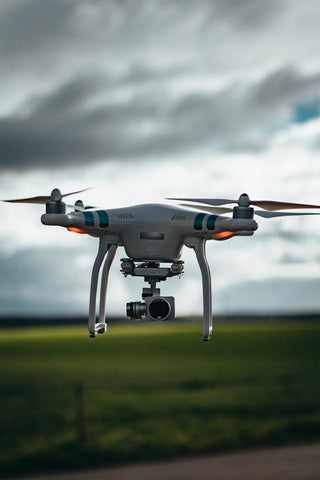
Advanced Efficiency: AI Insights into Irrigation & Irrigation Filtration
In the landscape of agriculture, efficiency is the name of the game. With the global population on a steady rise, the demand for food production has never been greater. This demand, however, comes with its own set of challenges, including the efficient use of water resources and maintaining soil health. Here's where artificial intelligence (AI) steps in as a game-changer, revolutionizing the way we approach irrigation and irrigation filtration.
Understanding the Role of AI in Irrigation
AI, with its ability to process vast amounts of data and derive actionable insights, holds immense potential in optimizing irrigation practices. Through the utilization of sensors, drones, and sophisticated algorithms, AI can analyze various factors such as soil moisture levels, weather patterns, crop characteristics, and water usage to provide real-time recommendations for irrigation scheduling.
By leveraging AI-powered systems, farmers can move away from traditional, schedule-based irrigation methods towards precision irrigation. This approach enables targeted water delivery directly to the root zones of plants, minimizing water wastage and maximizing crop yields. Additionally, AI algorithms can adapt irrigation schedules dynamically based on changing environmental conditions, ensuring optimal water usage throughout the growing season.
The Impact of AI on Irrigation Filtration
Effective filtration is essential for maintaining the integrity of irrigation systems and ensuring the delivery of clean water to crops. Here, AI plays a crucial role in enhancing filtration processes, thereby improving system performance and reducing maintenance costs. AI-driven filtration systems utilize advanced sensors and predictive analytics to monitor water quality in real-time. By continuously analyzing data on factors such as sediment levels, pH levels, and microbial content, these systems can detect anomalies and proactively address issues before they escalate.

This proactive approach not only ensures the delivery of clean water but also extends the lifespan of irrigation equipment by preventing clogs and corrosion. Furthermore, AI-powered filtration systems can optimize backwashing processes, which are essential for cleaning filter media and maintaining system efficiency. By analyzing historical data and performance metrics, AI algorithms can determine the most effective backwashing schedules and durations, minimizing water and energy consumption while maximizing filtration effectiveness.
Future Prospects & Challenges
While AI holds immense promise in transforming irrigation and irrigation filtration, several challenges lie ahead. Integration with existing infrastructure, data security concerns, and the need for specialized expertise are among the key hurdles that need to be addressed. However, with continued research and development, these challenges can be overcome, paving the way for widespread adoption of AI-driven solutions in agriculture. AI represents a paradigm shift in the way we approach irrigation and irrigation filtration. By harnessing the power of data analytics and machine learning, farmers can optimize water usage, improve crop yields, and enhance the sustainability of agricultural practices. As we embrace these technological advancements, we move closer to a future where efficient irrigation is not just a goal but a reality.
